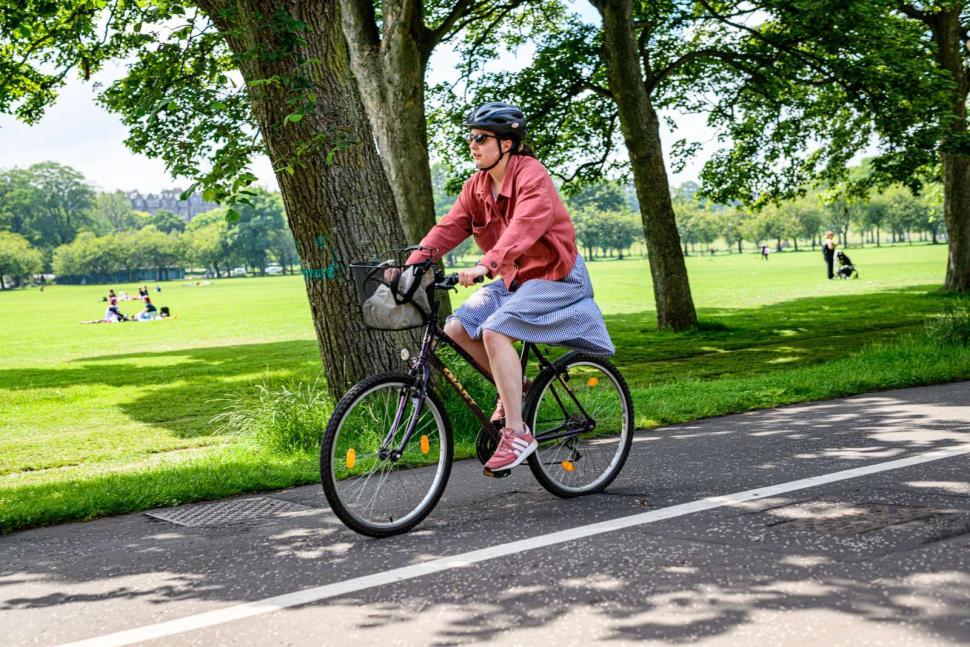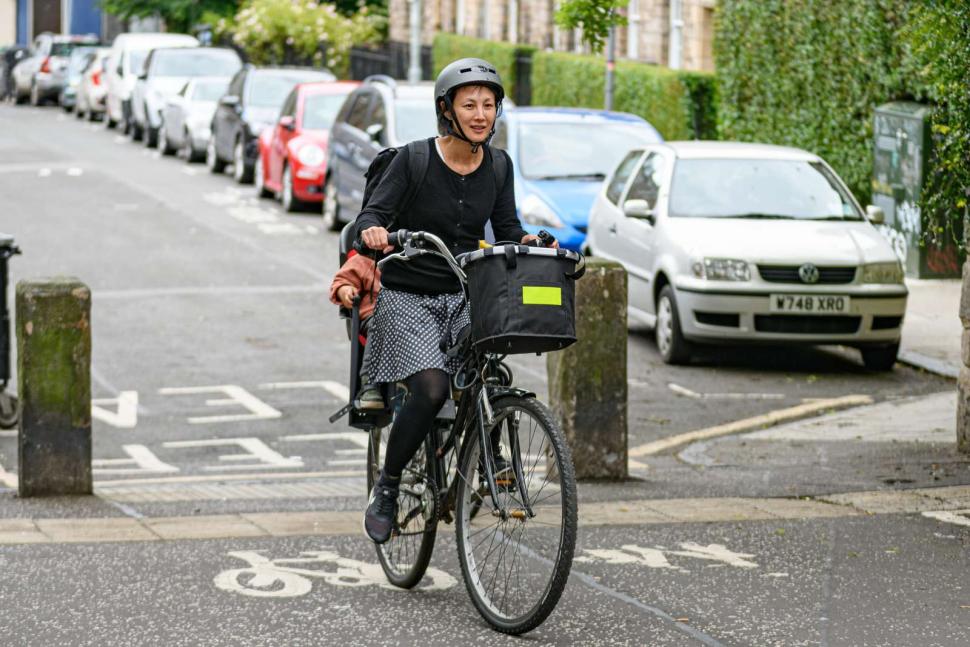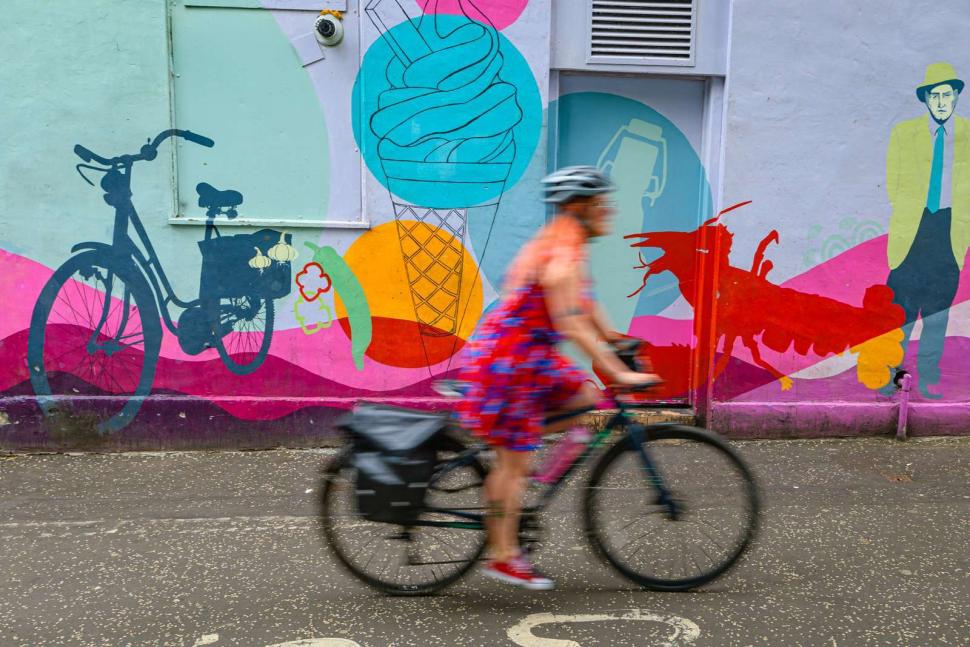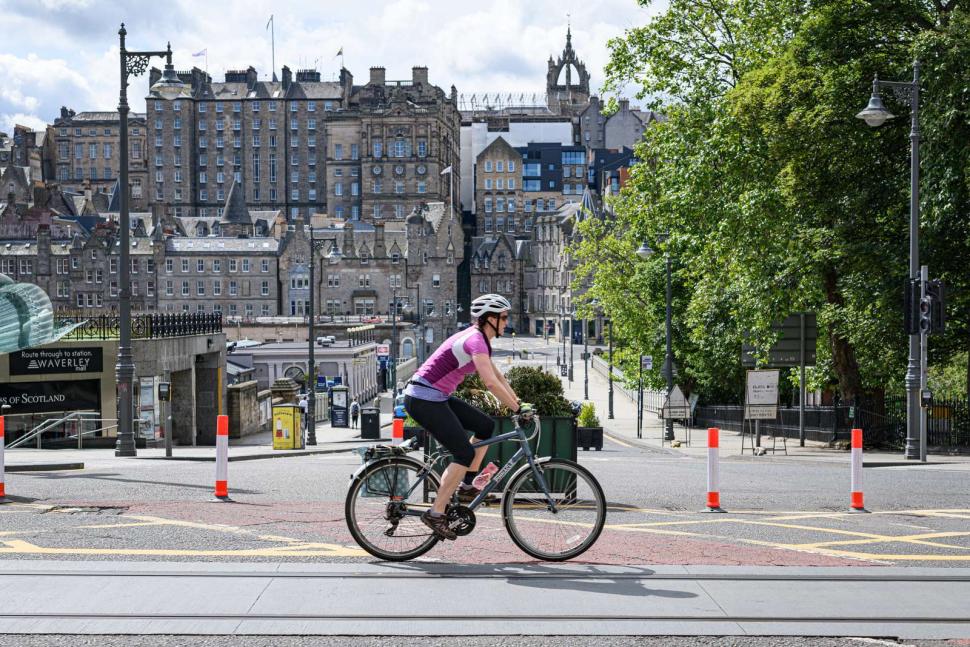- News
- Reviews
- Bikes
- Components
- Bar tape & grips
- Bottom brackets
- Brake & gear cables
- Brake & STI levers
- Brake pads & spares
- Brakes
- Cassettes & freewheels
- Chains
- Chainsets & chainrings
- Derailleurs - front
- Derailleurs - rear
- Forks
- Gear levers & shifters
- Groupsets
- Handlebars & extensions
- Headsets
- Hubs
- Inner tubes
- Pedals
- Quick releases & skewers
- Saddles
- Seatposts
- Stems
- Wheels
- Tyres
- Tubeless valves
- Accessories
- Accessories - misc
- Computer mounts
- Bags
- Bar ends
- Bike bags & cases
- Bottle cages
- Bottles
- Cameras
- Car racks
- Child seats
- Computers
- Glasses
- GPS units
- Helmets
- Lights - front
- Lights - rear
- Lights - sets
- Locks
- Mirrors
- Mudguards
- Racks
- Pumps & CO2 inflators
- Puncture kits
- Reflectives
- Smart watches
- Stands and racks
- Trailers
- Clothing
- Health, fitness and nutrition
- Tools and workshop
- Miscellaneous
- Buyers Guides
- Features
- Forum
- Recommends
- Podcast
 'My ride. Our right' women's cycling campaign (credit: Cycling UK)
'My ride. Our right' women's cycling campaign (credit: Cycling UK)"It's important we build safe cycle routes designed with women in mind": Abuse and unsafe infrastructure preventing more women from cycling, Cycling UK report states
Cycling UK has launched a campaign urging increased investment in active travel to get more women cycling, particularly in infrastructure designed with women in mind, after seven years of cycling progress has "reduced barriers for men, but not women".
The 'My ride. Our right' campaign highlights that many women are missing out on the freedom and benefits of cycling — with 9 in 10 women afraid to cycle in towns and cities. A lack of safe infrastructure and cycle routes, as well as threatening behaviour on the roads are cited as the major factors putting off women from cycling that should be addressed to remove barriers.
Cycling UK commissioned YouGov research this year and compared the results to similar YouGov research from 2018, the time period spanning years when there has been increased investment in cycling infrastructure. That investment's impact is borne out in the results too. For example, in London specifically, 26 per cent of this year's respondents saw a lack of separate cycle lanes as a barrier to cycling, compared with 49 per cent in 2018.
The cycling charity notes this "impressive fall" is largely attributed to London's investment in a comprehensive network of cycle and walking infrastructure, which "has enhanced the appeal and safety of cycling for many".
However, at the UK level, Cycling UK suggests the barriers to cycling have widened between men and women "across every measure in the past seven years".
The report states: "The gender gap in response to barriers such as drivers overtaking too closely and people who cycle experiencing threatening behaviour while on their bike decreased by five points for men but remained consistent for women.
"A lack of physically segregated cycle lanes decreased for men by four points but increased for women. These findings suggest that while improvements in infrastructure and driver behaviour have been enough to shift the perception of cycling for some men, who think cycling is now safer, it hasn't had the same impact for women."
Over half of women (58 per cent) believe their cycle journeys are limited by safety concerns and a lack of suitable infrastructure. Female respondents also pointed to roads not feeling safe enough to cycle (36 per cent) and a lack of dedicated cycle routes (23 per cent) as significant barriers to cycling, Cycling UK suggesting it highlights the "unique challenges" women face and a "real need for safer streets and well-lit routes designed with the experiences of women in mind".
Cycling UK's campaign also highlights that abuse on the roads "disproportionately deters women from cycling" and highlights the fears many women have when there are not sufficient safe, well-lit cycling routes available for use at night.
In response to the YouGov research, 45 per cent of women said a direct cycle route to their nearest town centre or high street would encourage them to cycle, while 39 per cent said the same for physically separated cycle lanes.
Sarah McMonagle, director of external affairs at Cycling UK said: "Many women, including myself, need to overcome barriers to cycling that simply don't affect men in same way. It's important we build safe cycle routes designed with the experiences of women in mind – while also calling out bad behaviour on our roads. Gender should never play a role in whether or not people feel able to choose to cycle.
"We know that the best way to enable millions more women to cycle is to build a network of separate cycle lanes across the country. That's why we're calling on all four governments in the UK to invest at least 10 per cent of their transport budgets in active travel as part of our new campaign. In England, the UK government is on the brink of making some momentous decisions about how it allocates funding over the next few years. Long term investment in active travel is essential to ensuring we realise the enormous economic, health and environmental benefits that come when more people cycle."
"It didn't end up putting that woman off cycling, but for many women cycling solo, that experience might have been enough to put the bike back in the shed"
Accompanying the stats, Cycling UK also heard from Tina, a 62-year-old cycle instructor from Stevenage, who explained how abuse and aggression on the roads can easily put someone off choosing bicycle journeys.
Detailing a recent incident when a van driver tailgated her, revving and honking as she cycled with a woman she was teaching, Tina suggested the episode "might have been enough to put the bike back in the shed" for many.
"He could have overtaken when it was safe, but instead, he chose to intimidate us," she said, explaining the driver pulled over and "stormed towards them to berate them" for riding two abreast.
"I explained that I was teaching this woman to ride safely and that it was legal and safer for us to ride together," she continued. "He had nothing to say to that. But the anger, the entitlement—it was all there.
"I knew that I was in the right and I had the confidence and the experience. It didn't end up putting that woman off cycling, but for many women cycling solo, that experience might have been enough to put the bike back in the shed."
Cycling UK suggested incidents like these, where riders face daily abuse simply for choosing to ride a bicycle, disproportionately impact female riders and "contribute to why men are twice as likely to have cycled within the past three months, with almost a third of women sharing they haven't cycled since they were 15 years old".
The idea that cycling infrastructure needs to be built with women in mind was also the message from research published in 2023, Monash University researchers surveying riders across Melbourne and finding that 77 per cent of women are interested in riding a bike, suggesting "massive potential" for enabling active travel further.
"It's about planning for the trips that aren't taken as well as those that are," the study's authors concluded. "Women want to make local trips and we need to make sure we're building the infrastructure to support this, not just thinking about the people that are already riding, and having that gender lens on all design decisions."
Dan is the road.cc news editor and joined in 2020 having previously written about nearly every other sport under the sun for the Express, and the weird and wonderful world of non-league football for The Non-League Paper. Dan has been at road.cc for four years and mainly writes news and tech articles as well as the occasional feature. He has hopefully kept you entertained on the live blog too.
Never fast enough to take things on the bike too seriously, when he's not working you'll find him exploring the south of England by two wheels at a leisurely weekend pace, or enjoying his favourite Scottish roads when visiting family. Sometimes he'll even load up the bags and ride up the whole way, he's a bit strange like that.
Latest Comments
- Secret_squirrel 18 min 45 sec ago
Not correct - most commonly prescribed SSRI's dont impact driving and impaired ability is a fairly rare side effect.
- brooksby 19 min 44 sec ago
I don't want a future where everything has to be bought online and you don't get to see it/feel it first
- PRSboy 1 hour 31 min ago
I came here on a small boat from the Road Cycling UK forum after that croaked a few yrs ago.
- mctrials23 1 hour 43 min ago
I don't see why not. If we are going by the parlance of the youth these days then your gran going down the shops is iconic. Even by the standard...
- A V Lowe 2 hours 12 min ago
The huge problem is the misues of the term pavement - I've cycled & driven cars on pavements for the past 61 years - their legal status is ...
- chrisonabike 4 hours 13 min ago
So what you're saying is the "baseline" would move from "lit up like a Christmas tree" to "like a chameleon at a rave" * ... and it would have...
- Oldfatgit 5 hours 9 min ago
Thank you for asking Aidan, much appreciated....
- ktache 14 hours 9 min ago
And I liked endura too. Got a nice long sleeve mostly merino long sleeve a little while back, in orange.
- matthewn5 14 hours 37 min ago
No, the Ebay lights have been around for several years, this Lezyne light just appeared.



Add new comment
31 comments
Agreed, although women face additional barriers in busy places too. All the women cyclists I know report a much higher level of abusive behaviour by drivers than I experience.
Pages